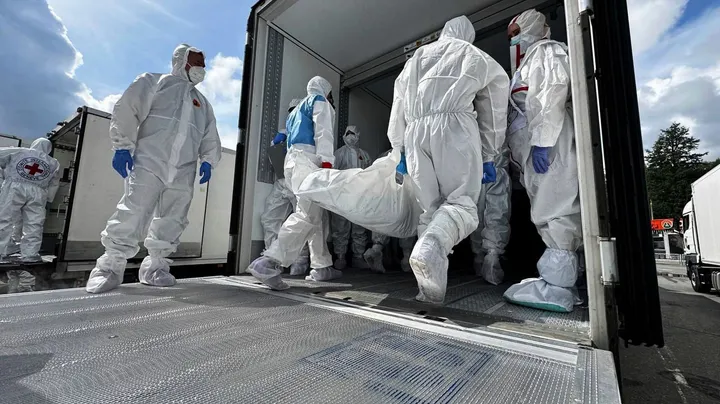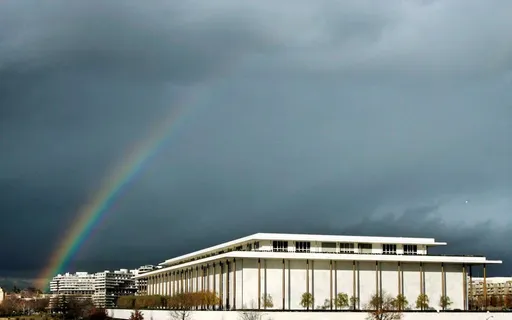It started with a news programme on Swiss national broadcaster, SRF, that aired on May 21. Journalist Pascal Weber reported that a young boy, only eight years old, had lost his eyesight during an air raid in early February.
An operation in one of the few functioning hospitals in Idlib had not produced the desired results, and Abdulrazak Dip went on to lose sight in his left eye completely. His right eye retained some functionality: “With this eye I can see brightness. I can't see anything with the other [left] eye. With the better eye I can see things far away. But only when it is light.”
Abdulrazak’s father had been planning to take his son for treatment in Turkey, but when the country closed its borders to Syria due to the coronavirus pandemic, Mohammad Dip despaired.
The family only had a 10 to 15 day window for the operation, as the silicone solution the doctors in Idlib had put on Abdulrazak’s eyes to prevent him from going completely blind would only last four months. When Weber had met the family, time had already started ticking.
“It's been three and a half months since then. That means we only have 10 to 15 days left before he needs an operation,” Mohammad told Weber in May.
A whirlwind in Turkey
Levent Ozturk is International Blue Crescent’s International Emergency Help Coordinator –– responsible for Yemen and Syria –– and also a journalist.
He tells TRT World that Turksoy International Organization of Turkic Culture’s Switzerland representative businessman, Oliver Stahle, got a hold of him on the first day of Eid, May 24. Stahle had seen Weber’s news story, and contacted a journalist he knew.
“I have a background in doing charity projects in Syria, and that’s why my colleague thought of me as a contact to pass on to Mr Stahle,” Ozturk says. “Mr Stahle used to do business in cotton in Turkey as an owner of a chain of fabric factories in the 1980s and knows the region well.”
Ozturk says he lost sight in his left eye during the 2008 Georgian Russian war. “We were shot at in our vehicle. My own situation made me all the more sensitive to Abdulrazak’s plight of course.”
Ozturk says he put his team on Abdulrazak’s case through the IBC, and Mehmet Sahin Ibis, himself a Syrian refugee, took care of the family.
“Meanwhile, Turksoy Foundation General Secretary Prof Dusen Kaseinov had stepped in to help Abdulrazak who couldn’t enter Turkey because of the coronavirus and succeeded in getting him to [the Turkish southern border city Hatay’s] Reyhanli town,” Ozturk shares.
Turkey’s embassy in Bern also shared Pascal Weber’s news story with the Ministry of Foreign Affairs, who then sought to coordinate the Dip family’s arrival in Turkey after the Eid holidays. But luckily, Abdulrazak and his family were already in Turkey by that time.
Ozturk says that they got together with the family after Eid on May 29 and then arranged for the boy to have surgery in an ophthalmic hospital in Adana.
Abdulrazak Dip’s hospital fees, Ozturk tells TRT World, were covered by Oliver Stahle via the IBC. The International Blue Crescent meanwhile took care of Abdulrazak’s official paperwork, his accommodation and psychosocial support via its community centre in Kilis.
“Thank Allah, the International Blue Crescent reached us, and helped transfer my child to Turkey for treatment. They covered all expenses. Thank Allah, he can see now,” Abdulrazak’s father Mohammad Dip told Anadolu Agency.
The situation in Syria
The war in Syria is in its 10th year. It has been called the deadliest war since World War II. The war has displaced most Syrians internally, while many others have sought refuge in neighbouring countries, including Turkey who is hosting more than 3.5 million Syrian refugees.
According to United Nations’ data, Anadolu Agency reports that a total of 6.7 million Syrians, including 2.5 million children, had to leave their country due to the civil war. The UN reports that there are ‘registered refugees' of more than 5.5 million across Turkey, Lebanon, Jordan, Iraq, Egypt and other countries.
The Syrian Network for Human Rights (SNHR), which documents human rights violations against civilians, as well as Turkey’s own Anadolu Agency (AA), have prepared a special report discussing children ravaged by the civil war in Syria.
According to the joint report of SNHR and AA, since the beginning of the Syrian civil war in March 2011, at least 29,296 children have been killed in the conflict, while many others were injured or disabled.
























